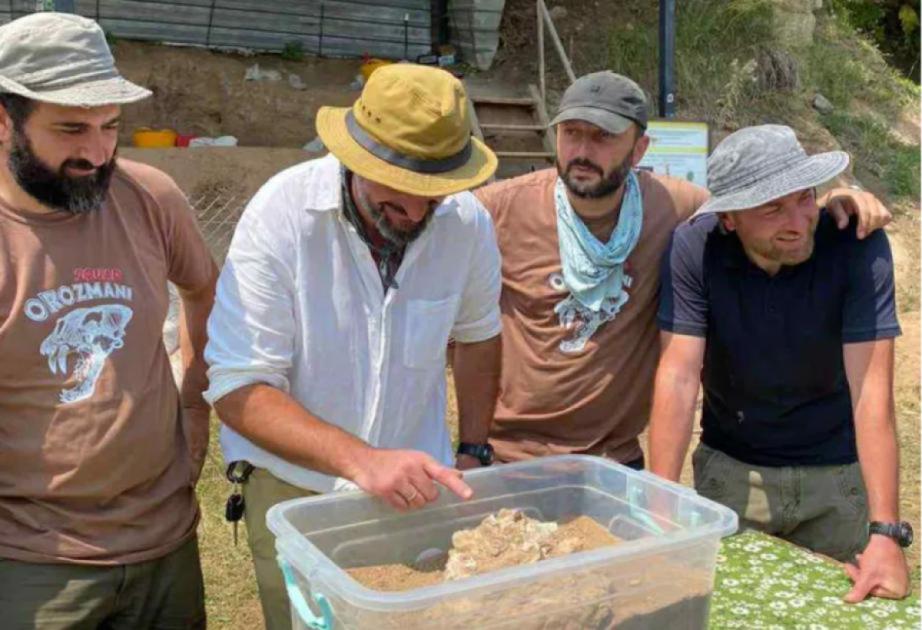
A 1.8-million-year-old human lower jaw has been unearthed during international archaeological excavations at Orozmani, a site near the village of Kvemo Orozmani in Georgia’s Dmanisi municipality, the Georgian National Agency for Cultural Heritage Protection announced.
The fossil, believed to belong to early Homo erectus, was found in sediment layers dated between 1.84 and 1.77 million years ago, the same area where a human tooth was discovered by the same expedition team in 2022.
The discovery was made by an international team led by archaeologist Giorgi Bidzinashvili, working under a permit issued in November 2024. Excavations resumed in July 2025 and are scheduled to continue through the end of September.
The site was recently visited by Davit Lortkipanidze, Director General of the Georgian National Museum, and Konstantine Pitskhelauri, Head of the Archaeology and Cultural Heritage Research Service of the National Agency.
The ongoing expedition includes both professional archaeologists and students from Georgia, the USA, France, Denmark, Colombia, and Kazakhstan, underscoring the site's growing importance in the study of early human migration and evolution.
This significant find adds to Georgia’s reputation as one of the most important prehistoric human sites outside Africa, further illuminating the path of early human dispersal across Eurasia.
1
0










